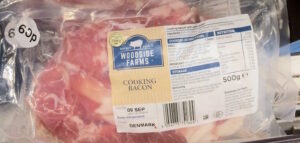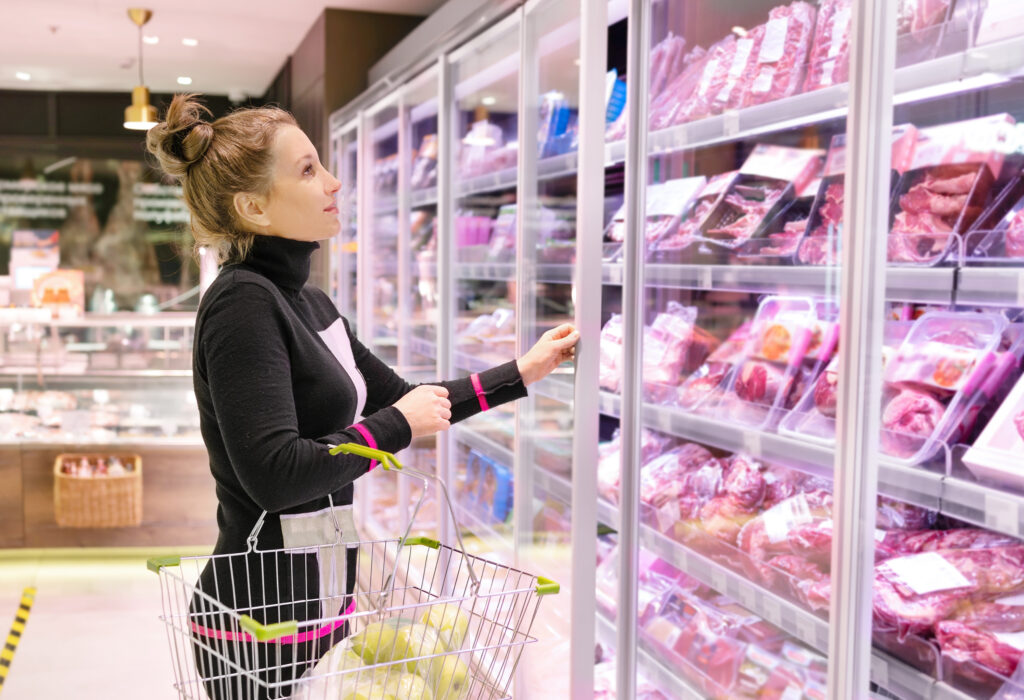Consumer champion Which? has found evidence of misleading, inconsistent and meaningless food labels in supermarkets, suggesting shoppers could struggle to get clear answers about where some of their food originates from.
A survey of 2,011 UK adults by the consumer champion revealed that only half (51%) of shoppers said they find the current origin information presented on groceries helpful. Two-thirds (64%) told Which? they would be more likely to buy a product labelled ‘British’ than one that was not.
The findings are published as Defra consults on changes to food labelling laws, including moves to bring about clearer country of origin labelling.
Which? researchers visited the UK’s biggest supermarkets and found various examples of ‘fairly meaningless information’ on pork product labels.
These included a pack of sausage rolls from Lidl which stated they were processed using ‘UK and non UK pork’ and a pack of gammon joints at Iceland where the pork was labelled as ‘EU and non-EU origin’.
Meanwhile, Aldi’s Crestwood bacon and cheese wraps had Union Jacks and ‘Made in Britain’ on the front of the pack. However, Which? researchers felt that the flag was misleading as the label on the back of the pack said they were in fact made with pork from the EU. The same was found with an Aldi steak and gravy pie.
Almost three-quarters (72%) of respondents in Which?’s survey said it was important to know where fresh meat comes from.
Researchers also found inconsistencies, such as Charlie Bigham’s lasagne ready meal, which lists its beef as British, but its moussaka fails to mention the origin of the lamb used. Half (51%) of respondents said it is important to them to know where processed and tinned meat comes from.

Under the current origin labelling rules, it is a requirement for there to be a country or place of origin label on meat, fish, fresh fruit and vegetables, as well as honey and wine, but the rules do not generally apply to processed meat or frozen or processed fruit and vegetables. There is a requirement to provide origin labelling if it would be misleading not to.
The researchers also found examples of loose cauliflowers, red cabbage, courgettes and onions at Sainsbury’s, peppers, melons and mangoes at Asda and spring onions at Aldi, with no visible origin labelling on the shelf edge or the products themselves. This was despite the survey research showing that two-thirds (68%) of consumers consider it important to know where fresh fruit and vegetables come from.
Tomatoes from Morocco, parsley from Italy and sweet mini peppers from Spain were foud on a shelf under a large banner decorated with a Union Jack and the words ‘Championing Great British Quality’ at the Aldi store Which? visited.
In one Asda store, Which? found cauliflowers that had a Union Jack on the shelf label but were actually from Spain.
Sharing findings
Origin information is important to shoppers. The survey revealed that 59% of shoppers who check for origin labelling do it because they want to support their local economy. Meanwhile, 58% of shoppers use it to help assess product quality and about half (52%) use it to try to understand the product’s environmental impact.
The consumer champion will be sharing its findings with Defra for its consultation on fairer food labelling.
Ele Clark, Which? Retail Editor, said: “Which? research has uncovered a surprising amount of inconsistent and misleading food labelling, suggesting that – even when the rules are properly adhered to – consumers aren’t getting all the information they want about their food’s origin.
“Shoppers want to know where their food comes from for multiple reasons, including supporting British suppliers and making more sustainable choices.
“Supermarkets should particularly focus on labelling loose fruit and vegetables more clearly, but manufacturers and retailers should also consider providing origin information on more processed meat products so shoppers are armed with the information they need to make informed choices.”
Retail replies
A spokesperson from Aldi said: “We understand that our shoppers want to know where the food they buy comes from, and we work hard to ensure that all our labelling complies with the rules.
A spokesperson from Asda said: ‘We have stringent processes in place to ensure country of origin is clearly displayed at the shelf edge and on products themselves where applicable, at all our stores.
A spokesperson for Iceland said: “At Iceland our products are great quality and value for customers and we follow UK Government, Department for Environment Food and Rural Affairs (DEFRA) guidance on Food labelling including country of origin.”
A spokesperson from Sainsbury’s said: ‘We have processes in place to make sure country of origin information is clearly displayed on the product or shelf and we carry out regular checks working closely with our regulator, the Animal and Plant Health Agency.’
A spokesperson for Tesco said: “We are committed to providing honest and helpful information so that customers can make an informed decision on what they wish to buy. We comply with all UK food labelling requirements, including country of origin labelling.”




